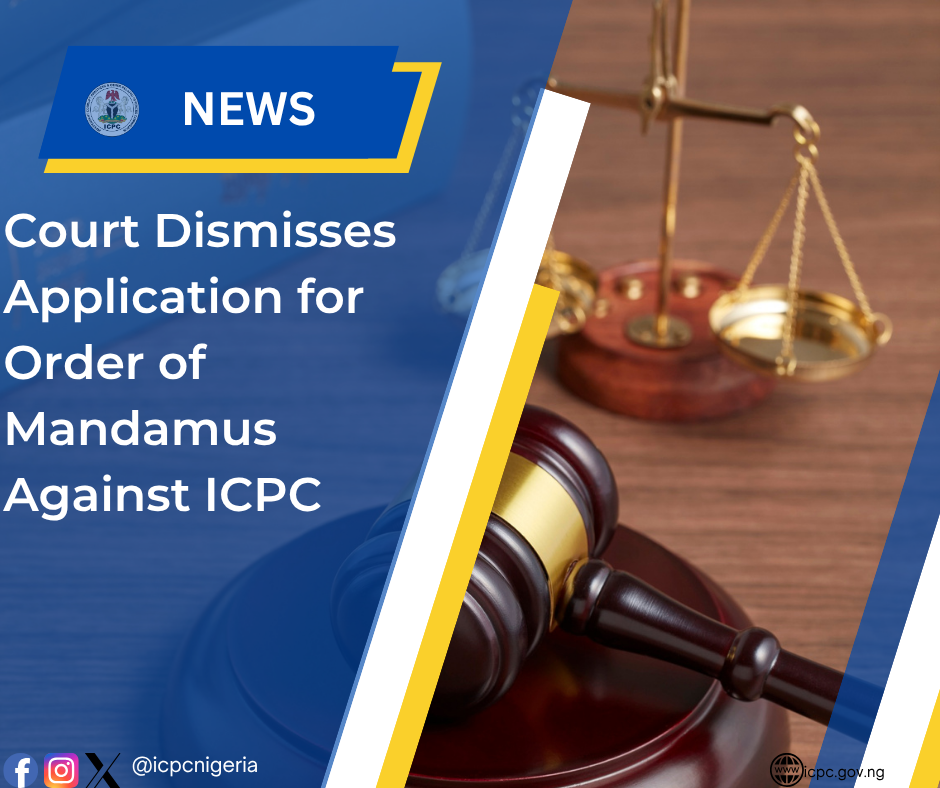The Federal High Court in Abuja, presided over by Justice M.O. Liman, has dismissed an application seeking an order of mandamus against the Independent Corrupt Practices and Other Related Offences Commission (ICPC) and six other respondents.
An order of mandamus, also known as a writ of mandamus, is a judicial directive that compels a public official or body to perform a legal duty. It is an extraordinary remedy typically granted only when a party has a clear legal right to the performance of that duty, and the official in question has failed or refused to act.
The applicant, Dr. Fanen Ade, had approached the court seeking an order compelling the ICPC, the Economic and Financial Crimes Commission (EFCC), and the Inspector-General of Police (the 5th, 6th, and 7th respondents) to carry out a detailed investigation into a public-private partnership between the Federal Housing Authority (FHA) and ENL Consortium Limited for the development and sale of housing units at the FHA/ENL Paradise Hills Estate in Abuja.
In addition, Dr. Ade requested that the court award the sum of ₦1,000,000.00 (One Million Naira) in exemplary and aggravated damages against the 1st to 4th respondents namely, the Federal Housing Authority, ENL Construction Limited, Princess Vicky Haastrup, and Mbaka Agwu for the alleged unlawful violation of his right of access to information, as guaranteed by Sections 1(1) and 4 of the Freedom of Information (FOI) Act, 2011.
The Applicant also cited wrongful denial of access to information under Section 7(4) of the same Act.
Delivering his judgment, Justice Liman dismissed the case in its entirety, ruling that the conditions for granting a mandamus were not met noted, “The principle of the order of mandamus cannot apply where there is discretion to act, or where there exists an alternative specific legal remedy albeit less convenient, beneficial, or effective. It also cannot be granted where the applicant has delayed unduly before bringing the application.”
Justice Liman further held that with regard to the 1st to 4th respondents, the relief sought by the applicant was inapplicable because the information requested was private and therefore exempted under the Freedom of Information Act.
According to Justice Liman, “The order of mandamus against the 5th to 7th respondents is also unavailable for the simple reason that the applicant did not first make any direct demand on these respondents to perform a specific public duty. Consequently, the necessary condition precedent for invoking the jurisdiction of the court was not fulfilled.”
The judge added that criminal investigations are inherently broad in scope and method, and the court is not in a position to issue an order it cannot effectively enforce.
“For this reason, too, I am disinclined to grant the order of mandamus,” he said.
“In the circumstances, the issues formulated are resolved against the applicant. As a result, this suit fails and is hereby dismissed.”


